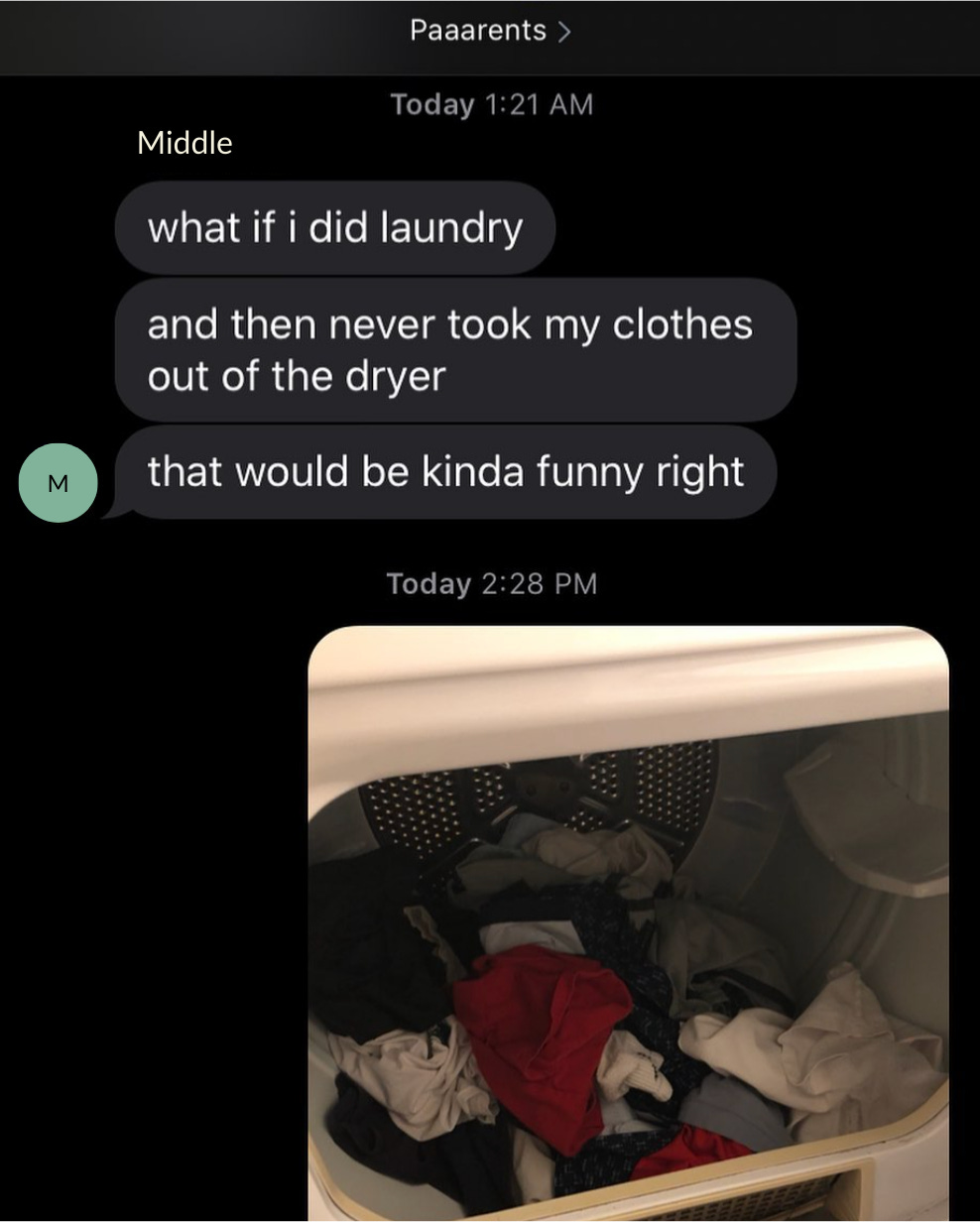Nag is both a noun and a verb
My feeble attempts to stop doing it and stop being one
As soon as you have roommates or live with a significant other, even without kids, you learn that there are norms around your home that you took for granted. There are the kinds of people who leave dirty dishes in the sink and the kinds who put them straight into the dishwasher. There’s generally accepted times to start decorating for various holidays or begin playing holiday music. After I married Jeff, I learned that there’s apparently a kind of person who always has a pair of pants on the floor that are either his “comfy pants” or his “outside pants” and he swaps between them based on whether or not he’s going outside but the pair not being worn never goes on a shelf or in a drawer.
I won’t pretend to be a clean freak but I’m relatively tidy: I make my bed every day, I descale my electric kettle every six weeks, and while I have lots of piles around me, they’re typically very organized piles.
When the kids first started spending time with us, we just had them for weekends so laundry wasn’t a regular part of the relationship outside of holiday weeks or vacations. Once we started having them for longer periods and took full/permanent custody, as one would expect, laundry increased greatly. Since all kids were over 10 by that point, they either did their own or Jeff/I helped but they were responsible.
Given that I wasn’t actually doing any of this laundry, I theoretically shouldn’t have complaints but there was a clearly established norm that was both fascinating and annoying to me: my kids believed that once the laundry made it into the dryer and the dryer was started that it was done. The dryer is their Troy; the floor of their rooms, Ithaca. The journey between the two could fill an epic poem. Please note that I’m not even going to pretend that drawers or hangers were the destination. This odyssey repeated itself more often than I’d like but suspiciously less often than grubby teenagers should be doing their laundry.
Once I needed to do my/household laundry, I always found myself emptying a kid’s (usually Middle’s if we’re pointing fingers) laundry into a laundry basket and leaving it outside their room where it would sit, parked on Calypso’s Island for days and days. The basket never moved an inch which meant that the kids would step over it multiple times and pull clean clothes out of it but not bring it into their rooms. I was confounded—not in the kind of delusional way where I thought that middle and high schoolers would leap to do laundry and put it away promptly but just in not understanding how anyone could become blind to a large object outside of their door.
After some nagging the basket would be brought inside their rooms and just picked out of until I complained about insufficient laundry basket availability and begged for one to be returned.
It got to be a bit of a joke:
Mostly I was on a rinse and repeat cycle of confusion and nagging. Nagging for laundry to be done, nagging for clothes to be out of the dryer, nagging for clothes to be folded and put away and laundry baskets to be returned. I tried to not be a nag by starting my constant prompts with “friendly reminder” and saying it it in an upbeat tone but, I am not a subtle person, and even in my friendliest tone, annoyance was clear. I tried to explain to Jeff that when you are constantly nagging, you become a nag. In my mid-30s, being an old, complaining nag brought to mind a sad horse that was put out to pasture and I found that vision, naturally, demoralizing.
I mentioned this in passing to a family therapist while trying to get to what I considered more important issues but she stopped me:
“So you’re nagging them all the time about the laundry and it doesn’t work?”
“Correct,” I replied quickly.
“Why do you keep doing it?”
“I want them to get their laundry in their rooms.”
“Ok, but this isn’t working. So you’re both feeling bad about yourself for constantly nagging and you’re not actually seeing any positive results.”
Cue: the absurdity dawning on me….
“If you were in the workplace, would you keep trying the same approach that was proven both unsuccessful and to make you feel bad about yourself?”
“I obviously would not” I said with the same “friendly reminder” tone where I’m trying to sound friendly but am annoyed because, look, [therapist], I got it. I’m tracking now. We can stop the therapeutic spoon-feeding.
“Maybe the solution is to just stop nagging—you won’t be a nag and the laundry will still not end up in rooms so you’re no worse off.”
And that’s basically what happened. Except that I bought an extra laundry basket and just started opening their doors and kicking their dry clothes all the way in before the smell of teenage room fully hit me.
Initially, I felt like a failure. But I do know the definition of insanity from Einstein and by that definition, my own behavior was insane and negatively impacting me. The reality is that there are big, complicated issues that affect your family and then there’s issues like this one which feel big because they happen repeatedly (and would be easy for the kids to solve on their own!) I needed someone else to give me permission to stop caring so much and move on. And if any of my kids’ future roommates have feedback on their laundry habits, I can honestly tell them I did my best and this one’s not my fault.





I don't feel comfortable responding to your question here but I sent you an e-mail. Thank you for sharing your story.